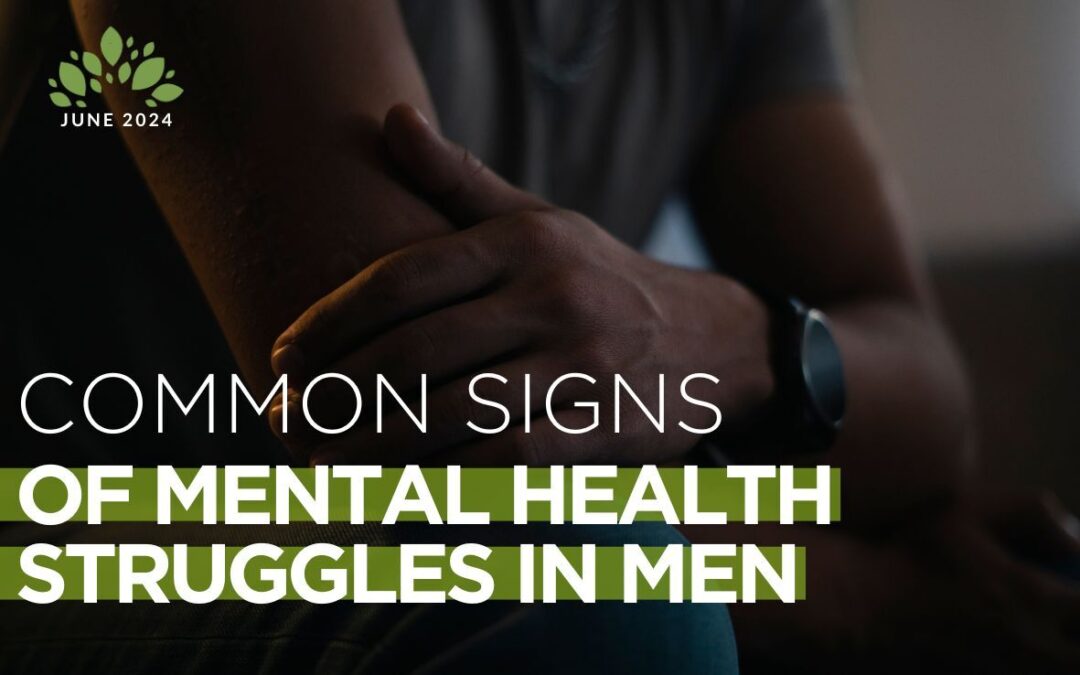Unmasking Silent Struggles: Recognizing Mental Health Signs in Men
Mental health is a crucial aspect of overall well-being, yet men often face unique challenges when it comes to recognizing and addressing their mental health conditions. Societal expectations and traditional gender roles can make it difficult for men to express vulnerability or seek help, leading to underdiagnosis and untreated conditions. Understanding the common signs can help identify when to seek help or offer support to someone in need. By recognizing these signs early, we can intervene more effectively and reduce the stigma associated with men’s mental health conditions. Here are some key indicators of mental health signs in men.
Behavioral Changes
Irritability and Anger:
Men might exhibit increased irritability or frequent anger outbursts. These behavioral changes can often be traced back to underlying issues such as stress, anxiety, or depression. Unlike the stereotypical presentation of sadness, men might externalize their emotions through anger, making it difficult for them and those around them to recognize the true cause. Recognizing these patterns can be the first step in addressing the root cause, as persistent irritability and anger can lead to strained relationships and further isolation.
Withdrawal from Social Activities:
A noticeable reduction in social interactions and hobbies is another significant sign of a mental health condition in men. This withdrawal can manifest as avoiding gatherings, canceling plans, or showing disinterest in activities they once enjoyed. Social isolation often exacerbates feelings of loneliness and depression, creating a vicious cycle. Encouraging men to stay engaged and connected, even when they feel like withdrawing, can be crucial to maintaining their mental health.
Physical Symptoms
Changes in Sleep Patterns:
Difficulty sleeping (insomnia) or sleeping too much (hypersomnia) can be clear indicators of mental health conditions. Men experiencing these problems might find themselves lying awake at night with racing thoughts or using excessive sleep as a way to escape from their problems. Both conditions can lead to significant disruptions in daily life, affecting work performance, relationships, and overall health. Addressing sleep issues with the help of a professional can significantly improve mental health and overall well-being.
Physical Ailments:
Frequent headaches, digestive issues, or unexplained aches and pains are common physical manifestations of mental health conditions. These symptoms can be particularly confusing and frustrating, as they may not have a clear medical cause. Men might experience these ailments due to the body’s response to chronic stress and anxiety. Understanding that these physical symptoms can be linked to mental health can encourage men to seek a holistic treatment that addresses both physical and psychological aspects.
Emotional Symptoms
Persistent Sadness or Hopelessness:
Prolonged feelings of sadness or a lack of interest in life are key signs of depression. This emotional numbness can be debilitating and affect various aspects of life, from work to personal relationships. Men might feel ashamed or reluctant to talk about their feelings, leading to further isolation. Recognizing these emotions and seeking help can prevent the condition from worsening and improve the quality of life.
Difficulty Concentrating:
Struggling to focus on tasks or make decisions can be a symptom of mental health conditions such as anxiety or depression. This can impact work performance, daily responsibilities, and personal lives, creating a cycle of stress and frustration. Men might find themselves procrastinating or avoiding tasks altogether. Identifying and addressing the root cause of concentration issues can help break this cycle and improve productivity and mental clarity.
Risky Behaviors
Substance Use
Increased use of alcohol or other substances as a coping mechanism is a significant red flag. Men might turn to substances to numb their pain or escape from their problems, but this behavior often exacerbates mental health conditions and can lead to dependency. Substance use can have serious consequences, affecting physical health, relationships, and careers. Recognizing the signs of substance use and seeking professional help is crucial for recovery and mental health improvement.
Reckless Actions
Engaging in dangerous or impulsive behaviors is another sign of underlying mental health conditions. This can include reckless driving, impulsive spending, or taking unnecessary risks. These actions might be an attempt to cope with or distract from emotional pain but can have severe consequences. Encouraging men to seek help and find healthier ways to cope with their emotions can prevent these risky behaviors and improve overall safety and well-being.
Professional Help at Aspire
If someone is struggling with a mental health condition, professional help is available. At Aspire, experienced therapists and counselors provide the support and guidance needed to navigate these challenges. The unique challenges men face when it comes to mental health are understood, and compassionate and confidential care ensures a safe environment for expressing thoughts and feelings. Personalized treatment plans are tailored to specific concerns and goals, whether one-on-one therapy, group sessions, or family counseling are needed. Expertise in men’s mental health, combined with evidence-based approaches such as cognitive-behavioral therapy and mindfulness techniques, helps one develop coping strategies and improve emotional well-being. Don’t hesitate to reach out and begin the journey to wellness with Aspire.
Myself
A Loved One
A Teen

Planting Seeds, Saving Lives
Copyright © 2026 Aspire Counseling Services® | Privacy Practices | Terms and Conditions | Powered & Designed by Citryn, LLC

MENU
LOCATIONS

